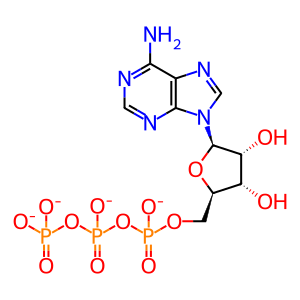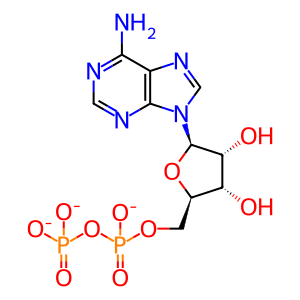Reaction: GLI proteins are phosphorylated
- in pathway: Hedgehog 'on' state
Hh signaling induces phosphorylation of full-length GLI that coincides with its nuclear localization and transcription factor activity (Humke et al, 2010; reviewed in Hui and Angers, 2011). Although this is depicted as occuring in the nucleus, the identity and location of the kinase(s) is not definitively known, nor is the ordering of the phosphorylation and translocation events (Wen et al, 2010; Humke et al, 2010; reviewed in Hui and Angers, 2011). Both cytoplasmic/ciliary and nuclear full-length GLI proteins are likely subject to phosphorylation, and the interaction between the numerous regulatory events is not clear. CDC2L1 was identified as a kinase that positively regulates Hh pathway activity, and it was shown to bind SUFU and promote the dissociation of the GLI1:SUFU complex in a kinase-dependent manner in mouse, but it has not been implicated in the phosphorylation of the GLI transcription factors themselves (Evangelista et al, 2008). ULK3 is another kinase that positively regulates Hh signaling and has been proposed to phosphorylate GLI proteins to promote their transcriptional activity (Maloverjan et al, 2010a; Maloverjan et al, 2010b; reviewed in Maloverjan and Piirsoo, 2012). DYRK family kinases are also implicated in the post-transcriptional regulation of the GLI proteins in both a positive and a negative manner (Mao et al, 2002; Lauth et al, 2010; Varjosalo et al, 2008).
Once in the nucleus, phosphorylated GLI transcription factors bind to promoters of Hh-responsive genes such as PTCH1, PTCH2, GLI1 and HHIP to activate transcription (Vokes et al, 2007; Vokes et al 2007; Lee et al, 2010; reviewed in Briscoe and Therond, 2013). The full-length transcriptionally active GLI proteins are labile and subject to SPOP-dependent proteolysis (Chen et al, 2009; Zhang et al, 2009; Wen et al, 2010).
Once in the nucleus, phosphorylated GLI transcription factors bind to promoters of Hh-responsive genes such as PTCH1, PTCH2, GLI1 and HHIP to activate transcription (Vokes et al, 2007; Vokes et al 2007; Lee et al, 2010; reviewed in Briscoe and Therond, 2013). The full-length transcriptionally active GLI proteins are labile and subject to SPOP-dependent proteolysis (Chen et al, 2009; Zhang et al, 2009; Wen et al, 2010).
Reaction - small molecule participants:
ADP [nucleoplasm]
ATP [nucleoplasm]
Reactome.org reaction link: R-HSA-5635841
======
Reaction input - small molecules:
ATP(4-)
Reaction output - small molecules:
ADP(3-)
Reactome.org link: R-HSA-5635841


